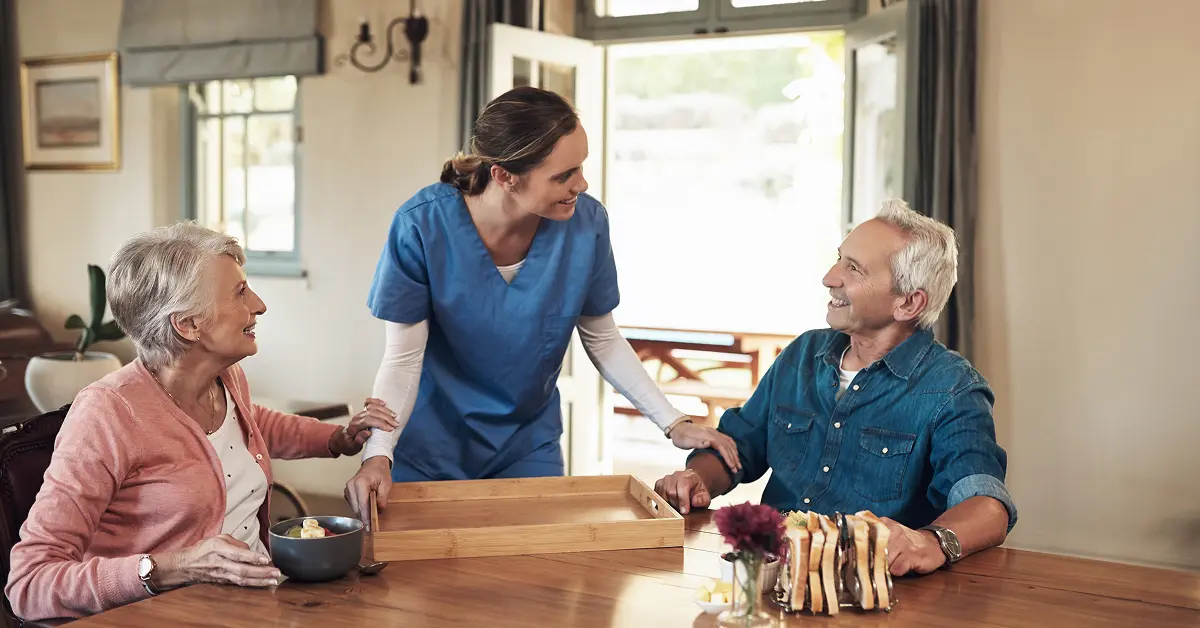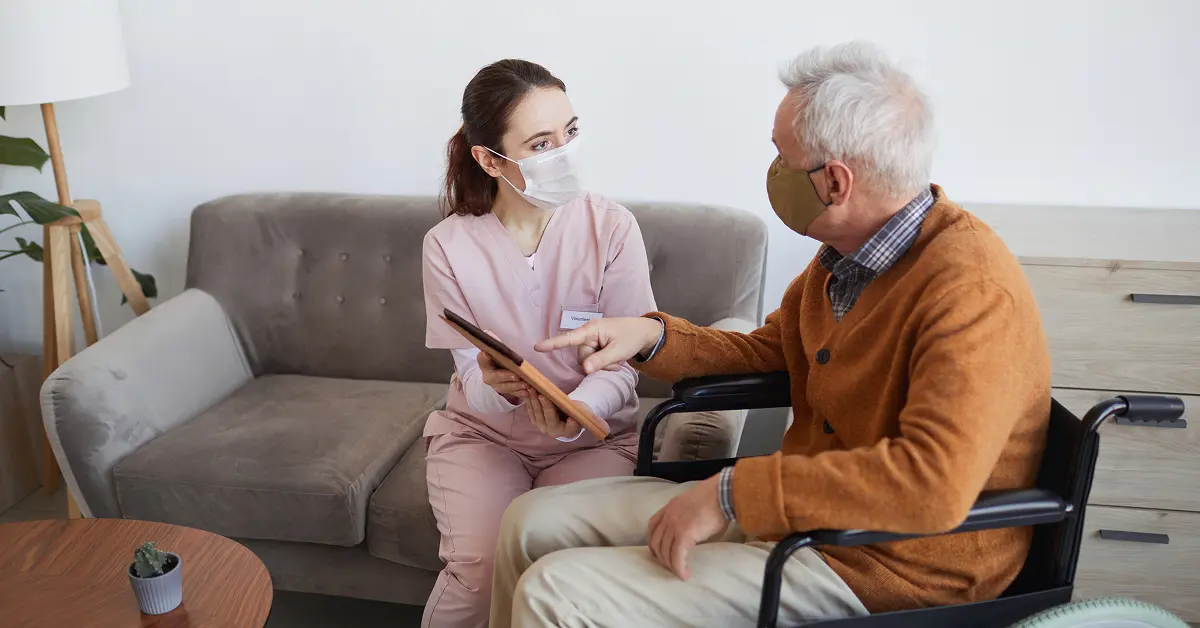Learn effective tips on how to care for seniors with incontinence, including hygiene practices, emotional support, and choosing the right products for elderly care in India.
Caring for seniors comes with many responsibilities, and one of the most delicate and challenging aspects is managing incontinence. Incontinence, or the loss of bladder or bowel control, is a common issue among older adults. In India, where many elderly parents live with their families, this condition can be both emotionally and physically taxing for caregivers.
This blog provides compassionate, practical, and culturally relevant guidance for Indian families and caregivers dealing with elderly incontinence.
What Is Incontinence in Seniors?
Incontinence can be either urinary (involving the bladder) or fecal (involving the bowel), and it varies from mild leakage to complete loss of control. Some of the common types of incontinence in seniors include:
- Stress incontinence: Leakage during coughing, sneezing, or laughing.
- Urge incontinence: Sudden, intense urge to urinate.
- Overflow incontinence: Inability to completely empty the bladder.
- Functional incontinence: Due to physical or mental limitations.
Causes of Incontinence in Elderly Adults
Several factors can contribute to incontinence in seniors:
- Age-related weakening of bladder muscles
- Prostate issues in men
- Menopause-related changes in women
- Neurological disorders (e.g., Parkinson's, Alzheimer's)
- Diabetes
- Medications (diuretics, sedatives)
- Urinary tract infections
A doctor can help identify the cause and suggest the best course of action.
Emotional Impact on Seniors
Incontinence is not just a physical challenge—it carries a significant emotional burden:
- Shame or embarrassment: Many seniors feel humiliated about their condition.
- Isolation: Fear of accidents in public can lead to social withdrawal.
- Depression: Loss of independence and dignity often affects mental health.
As a caregiver, acknowledging these emotions and offering reassurance and respect is vital.
Tips for Caring for Seniors with Incontinence
Here are practical, respectful, and effective ways to manage incontinence in elderly loved ones.
Consult a Healthcare Professional
Before anything else, consult a geriatrician or urologist. Proper diagnosis can help treat underlying medical causes. Doctors might recommend:
- Medications
- Pelvic floor exercises
- Physical therapy
- Surgery (in severe cases)
Create a Toileting Schedule
Establishing a regular toilet routine can significantly reduce accidents. For instance:
- Encourage bathroom visits every 2-3 hours
- Ensure access to a nearby toilet, especially during the night
- Use a bedside commode if mobility is limited
Use Incontinence Products
Choosing the right incontinence products can make caregiving much easier. These include:
- Adult diapers (pant style and tape style)
- Underpads (bed protectors)
- Waterproof mattress covers
- Absorbent underwear or pads
In India, many trusted brands such as Friends, KareIn, and Lifree offer products tailored for senior needs.
Maintain Good Hygiene
Hygiene is critical to prevent rashes, infections, and discomfort.
- Clean the genital area with warm water and mild soap after every accident
- Use wipes that are alcohol-free and skin-friendly
- Apply barrier creams to avoid diaper rashes
- Change diapers promptly to keep the skin dry
For bedridden seniors, special attention is needed to prevent bedsores.
Keep the Environment Safe and Accessible
Make the home senior-friendly to ease toileting:
- Install grab bars near toilets and beds
- Ensure proper lighting in hallways and bathrooms
- Use anti-slip mats
- Keep the path to the bathroom free of obstacles
For Indian homes with squatting toilets, consider installing a western commode or using a toilet seat riser.
Encourage Fluid Intake and Diet Control
Ironically, some caregivers reduce fluid intake to manage incontinence, but this can worsen the condition.
- Encourage plenty of water during the day (not late at night)
- Limit caffeine, alcohol, and spicy foods that irritate the bladder
- Include high-fiber foods to prevent constipation, which can pressure the bladder
Support Emotional and Psychological Well-being
Always treat your elderly loved one with dignity and kindness.
- Never scold or shame them for accidents
- Reassure them that it’s a common medical issue, not their fault
- Talk openly but gently about incontinence to reduce stigma
- Offer emotional support through counseling or caregiver groups if needed
Use Technology for Support
Smart devices can be surprisingly helpful:
- Timers or alarms to remind them to use the toilet
- Leak detection pads for bedding
- Apps to track bathroom visits and product changes
Special Considerations for Indian Households
In Indian culture, caregiving is often a family responsibility, and elders may resist help due to pride or embarrassment. Here's how to handle it sensitively:
- Use respectful language: Refer to diapers as "protective wear" or "support garments"
- Assign same-gender caregivers: Elderly women may prefer female caregivers for personal hygiene
- Involve a family doctor: Sometimes, advice is better received from medical professionals than family
- Use Ayurveda or natural remedies (under doctor supervision): Triphala, guggulu, or yoga can sometimes offer relief
When to Seek Professional Help
Despite your best efforts, you may need external help:
- Hire a trained home nurse or caregiver
- Look for elder care services in your city (e.g., Portea, Nightingales, Care24)
- Consider adult daycare or assisted living if home care becomes overwhelming
Always put safety and quality of life above all.
Final Thoughts
Caring for seniors with incontinence is not just about managing a medical condition—it’s about preserving dignity, respect, and quality of life. With the right approach, products, and support, it is entirely possible to create a clean, safe, and emotionally positive environment for your elderly loved ones.
Remember, you are not alone. Thousands of Indian families are going through the same experience. With empathy, patience, and a little planning, you can make a big difference.
Contents
Our 24*7 services
Latest Posts
- What Is Respite Care and Why Is It Important
- Affordable home care for senior citizens in India
- Caring for Seniors with Dementia or Alzheimer's at Home
- Senior Caregiving A Guide for Every Family
- How to Write a Caregiver Resume That Gets You Hired
- How Care After Hospital Discharge Speeds Up Recovery at Home
- How to Get Home Health Care for Seniors Through Medicare
- What Does a Senior Citizen Caregiver Really Do at Home
- How to Care for Elderly Parents with Alzheimer’s or Dementia
- How to Get 24-Hour Care for Seniors at Home



